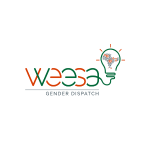

Women’s Economic Empowerment in South Asia (Hosted by SAR GIL)
Tags
- Gender-based Violence (17)
- Water (17)
- Measurement (10)
- Leadership (19)
- Afghanistan (4)
- Social Norms (9)
- Infographics (9)
- Migration (14)
- Transportation (12)
- Green Transition (7)
- Brief (2)
- Empowerment (5)
- Toolkits (13)
- Pakistan (23)
- Energy (26)
- Jobs (43)
- Infrastructure (20)
- Self-help Groups (12)
- Agriculture (12)
- Social Protection (12)
- Digital Inclusion (19)
- Nepal (12)
- Private Sector (27)
- Care Economy (10)
- Bhutan (2)
- Sri Lanka (6)
- Blogs & Articles (34)
- Podcast (33)
- Reports (70)
- India (30)
- Assets and Resources (14)
- Bangladesh (24)
- Maldives (1)
- Climate Change (32)
- Entrepreneurship (31)
- Video (2)
- Financial Inclusion (24)
- Policies and Legislation (14)
- Male Engagement (7)
- Gender Budgeting (7)
- Education and Skills (23)
Archives
- 2023 September (55)
- 2023 October (30)
- 2023 November (20)
- 2023 December (1)
- 2024 January (14)
- 2024 February (14)
- 2024 March (11)
- 2024 April (13)
- 2024 May (93)
- 2024 June (2)
- 2024 July (12)
- 2024 August (16)
- 2024 September (12)
- 2024 October (16)
- 2024 November (27)
- 2024 December (5)
- 2025 January (12)
- 2025 February (18)
- 2025 March (19)
- 2025 April (8)
- 2025 May (12)
- 2025 June (2)

Documents
Care Work and Intra-Household Tensions during COVID-19: Evidence from an Online Survey of Gig Workers in India
This note examines gender disparities in care work and intra-household tensions among online gig workers in India. The data was collected as part of an online experiment in April 2020,
Adolescence in the Time of COVID-19: Evidence from Bangladesh
This note examines the effects of COVID-19 and subsequent economic and educational disruptions on adolescent well-being in Bangladesh. The analysis is based on data from 2,095 in-school adolescents aged 10–18
Effects of a Multifaceted Education Program on Enrollment, Learning, and Gender Equity: Evidence from Rajasthan, India
The Sustainable Development Goals set a triple educational objective: improve access to, quality of, and gender equity in education. This note documents the effectiveness of a multifaceted educational program pursuing
Impacts of COVID-19 on Labor Markets and Household Well-Being in Pakistan: Evidence from an Online Job Platform
This brief uses the administrative database of Pakistan’s largest online job platform and an online COVID-19 survey to examine the gender impacts of the COVID-19 pandemic on labor markets and
Women’s Employment and Safety Perceptions: Evidence from Low-Income Neighborhoods of Dhaka, Bangladesh
This brief uses the 2018 Dhaka Low-Income Area Gender, Inclusion, and Poverty (DIGNITY) survey to assess the gender gap in safety perceptions and analyze the correlation between women’s safety perception
Who are the victims of low-carbon transitions? Towards a political ecology of climate change mitigation (2021)
Grounded in an expert guided literature review of 198 studies and their corresponding 332 case studies, this article assesses the linkages between low carbon transitions—including renewable electricity, biofuel, nuclear power,
Maladaptation: When Adaptation to Climate Change Goes Very Wrong (2020)
Adapting to climate change is necessary, but planning adaptation is an exercise in uncertainty which builds on imperfect information. Many adaptation strategies fail, and some go even create conditions that
Navigating the Continuum between Adaptation and Maladaptation (2023)
While adaptation is increasing across all sectors globally, the effectiveness is inadequate and examples of maladaptation are increasing. To reduce the risk of maladaptation, the authors propose the framework: Navigating
Women's Economic Empowerment: What Do We Know About Interventions to Increase Women’s Economic Participation and Empowerment in South Asia? Skills and Training Interventions
The World Bank’s South Asia Region Gender Innovation Lab is conducting a systematic review and meta-analysis of interventions with direct or indirect effects on measures of women’s economic empowerment. The
What do We Know About Interventions to Increase Women’s Economic Participation and Empowerment in South Asia? Self-Help Group Programs
The World Bank’s South Asia Region Gender Innovation Lab is conducting a systematic review and meta-analysis of interventions with direct or indirect effects on measures of women’s economic empowerment. The